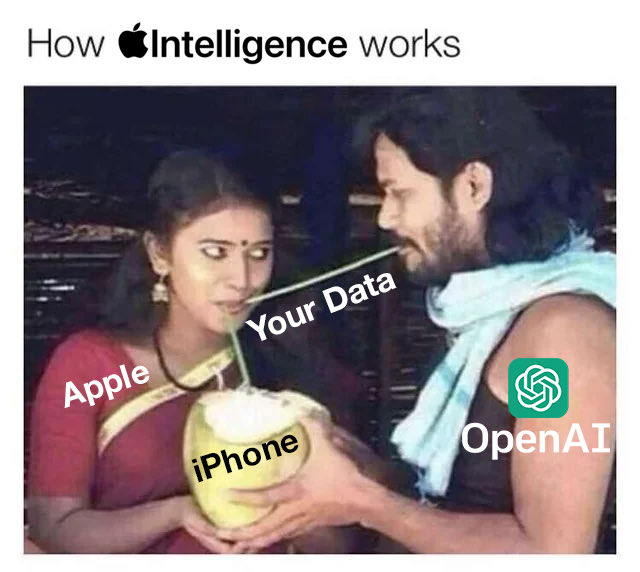Musk threatens to ban Apple devices at his companies due to ChatGPT integration
- Elon Musk’s Strong Stance: Musk threatens to ban Apple devices at his companies if Apple integrates OpenAI at the OS level, citing security concerns.
- Apple and OpenAI Partnership: Apple announces integration of ChatGPT into iOS, iPadOS, and macOS, enhancing user experience with AI capabilities.
- Privacy Measures: Apple and OpenAI assure users of strong privacy protections and data security in the new integration.

In a surprising turn of events, Elon Musk has publicly criticized Apple’s recent partnership with OpenAI to integrate ChatGPT into its operating systems. The announcement, which was made during Apple’s Worldwide Developer Conference 2024, has stirred up significant controversy, with Musk taking to X (formerly known as Twitter) to voice his concerns.
Musk’s Reaction on X
Elon Musk did not mince words in his series of posts on X. He stated, “If Apple integrates OpenAI at the OS level, then Apple devices will be banned at my companies. That is an unacceptable security violation.” He further elaborated, “And visitors will have to check their Apple devices at the door, where they will be stored in a Faraday cage.”
Musk’s concerns extend beyond just the integration itself. He sharply criticized Apple’s reliance on OpenAI, saying, “It’s patently absurd that Apple isn’t smart enough to make their own AI, yet is somehow capable of ensuring that OpenAI will protect your security & privacy! Apple has no clue what’s actually going on once they hand your data over to OpenAI. They’re selling you down the river.”
Apple and OpenAI Partnership Details
Apple’s integration of ChatGPT into iOS, iPadOS, and macOS is designed to enhance user experiences by allowing seamless access to AI capabilities. This includes understanding images and documents, generating content, and providing intelligent responses through Siri.
Sam Altman, CEO of OpenAI, expressed enthusiasm about the partnership, saying, “We’re excited to partner with Apple to bring ChatGPT to their users in a new way. Apple shares our commitment to safety and innovation, and this partnership aligns with OpenAI’s mission to make advanced AI accessible to everyone. Together with Apple, we’re making it easier for people to benefit from what AI can offer.”
Privacy Measures
To address privacy concerns, Apple and OpenAI have implemented robust measures. Users are prompted before any questions, documents, or photos are sent to ChatGPT. The data is not stored by OpenAI, and IP addresses are obscured to protect user identity. Additionally, users can connect their ChatGPT accounts to apply their data preferences under ChatGPT’s policies.
Implications and Industry Reactions
Musk’s reaction has raised questions about the broader implications of integrating third-party AI into major operating systems. While the partnership aims to enhance user experience and productivity, the concerns around data privacy and security cannot be ignored.
This development also highlights the ongoing debate about the control and use of AI technologies by major corporations. As AI becomes more integrated into daily life, ensuring that these technologies are used responsibly and securely remains a critical challenge.
In the tech industry, responses have been mixed. Some experts argue that the integration of advanced AI like ChatGPT into everyday devices represents a significant leap forward in usability and functionality. Others, however, share Musk’s concerns about potential security risks and the over-reliance on external AI providers.
The collaboration between Apple and OpenAI marks a significant step in the integration of AI into consumer technology. However, Elon Musk’s strong opposition underscores the need for ongoing scrutiny and discussion about the security and ethical implications of such advancements. As the rollout of ChatGPT on Apple devices progresses, it will be crucial to monitor how these concerns are addressed and how the technology is received by users and the broader industry.
